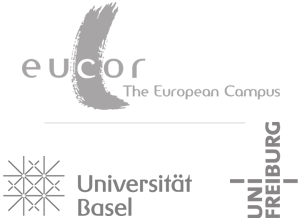AFLiCo 8 – “Language, Cognition, and Creativity”(Konferenz)
| Date | Wednesday, 5th June 2019 |
| Location | University of Haute Alsace, Mulhouse, France |
veranstalter: French Association of Cognitive Linguistics
ansprechpartner: Prof. Craig Hamilton
email: craig.hamilton@uha.fr
web: https://aflico8.sciencesconf.org
institution: HPSL
language: Englisch
location institution: Other
date_raw: 5.-7. Juni 2019
date_sort: 05.06.2019, 00:00:00
CONFIRMED PLENARY SPEAKERS
Elena SEMINO (Lancaster University, UK): “Metaphor, Creativity and Illness”
Jeannette LITTLEMORE (University of Birmingham, UK): “Variation in the Experience of Metaphor: Theoretical and Real-world Consequences”
Laura Hidalgo DOWNING (Universidad Autónoma Madrid, Spain): “Metaphor and Creativity: Discourse, Cognition and Social Practices”
Andreas LANGLOTZ (University of Basel, Switzerland): “Creating the Uncanny – A Cognitive-Linguistic Perspective on Emotion in the Kafkaesque”
Hans-Joerg SCHMID (LMU Munich, Germany): “Towards a Better Understanding of How Usage, Mind and Society Interact in Language Change”
Mark TURNER (Case Western Reserve University, USA): “The Central Problem of Language: A Construction Grammar Theory of Creativity”
OBJECTIVES
This will be the 8th biennial international conference of AFLiCo, the French Association for Cognitive Linguistics (www.aflico.fr). It follows the previous AFLiCo international conferences held in Bordeaux (2005), Lille (2007), Nanterre (2009), Lyon (2011), Lille (2013), Grenoble (2015), and Liege (2017).
We welcome 20 minute presentations (with 8 minutes for follow-up questions) or posters from students and researchers interested in linguistic creativity. Interdisciplinary papers are welcome which address verbal creativity in conversations, humor, written communication, the verbal arts, multimodal forms, gestures, etc. Because creativity is of interest to many different researchers (see scientific statement), we also welcome papers from those working on creativity in fields such as psycholinguistics, sociolinguistics, corpus linguistics, pragmatics, and psychology.
